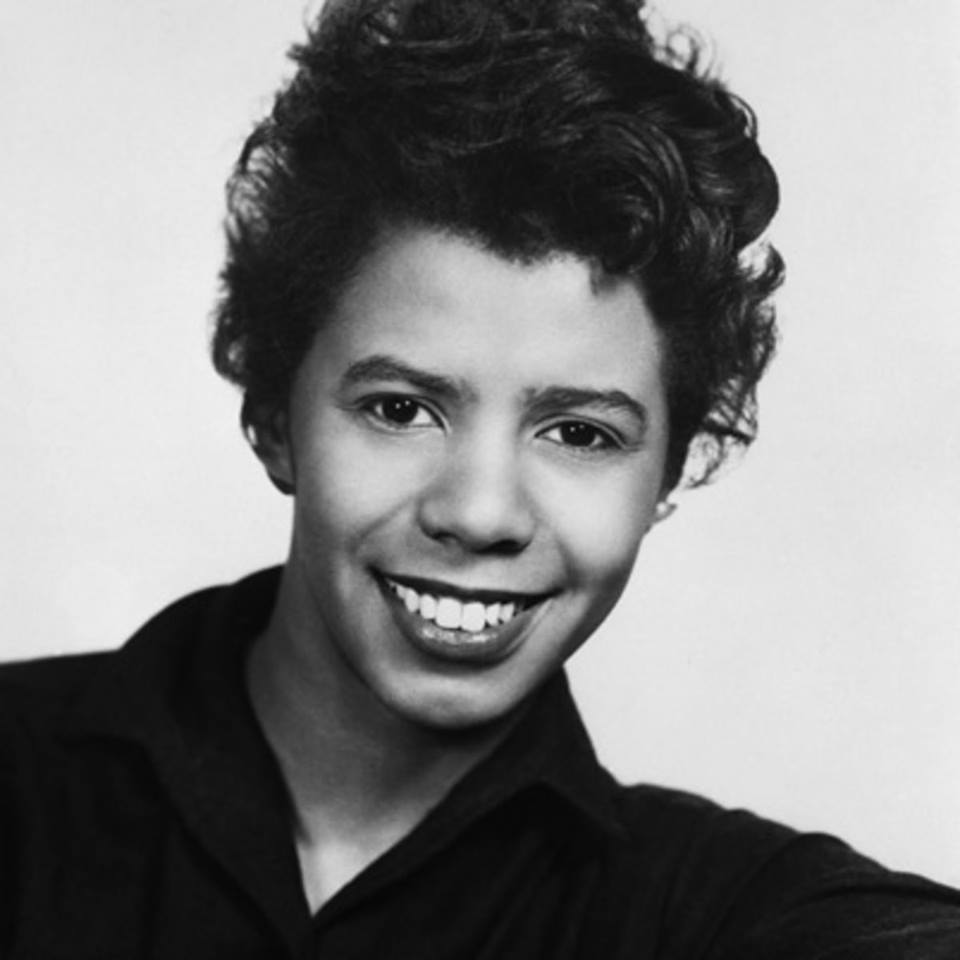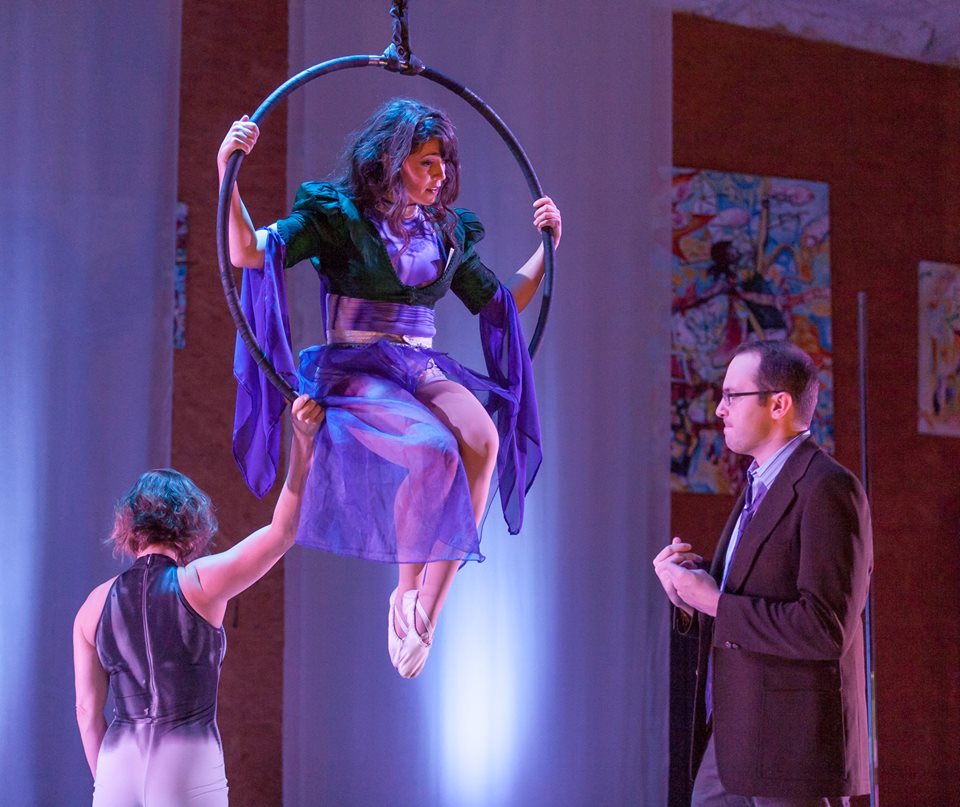A Raisin in the Sun
By Lorraine Hansberry
Directed by Nipsey Greene
Review by Keith Waits
Entire contents copyright © 2016 Keith Waits. All rights reserved.
No less than Frank Rich, writing in The New York Times about the original 1959 production, called A Raisin in the Sun a play that: “changed American theater forever.” The first Broadway production of an African American playwright, Lorraine Hansberry, with a cast that included only one Caucasian actor, in its time it was revolutionary, and after more than 50 years, it remains surprisingly relevant.
It comes as no surprise that Smoked Apple Theatre Group would choose to produce such a landmark play. It fits right into their mission and aesthetic. A better question might be why does it take a company dedicated to African American theatre to do it? Raisin is a classic play, beautifully constructed and concerned with universal themes that still resonate. That was one of the issues spoken of in 1959: can a story about a black family speak to white audiences?
Yet the story of the Younger family, who live in a cramped apartment on Chicago’s south side, is about generational and socio-economic conflicts that are not restricted by race. Indeed, the title draws from a Langston Hughes poem about “dreams deferred,” and what dream is Hansberry talking about if not the archetypal “American Dream” in which we seek to better ourselves and rise in society?
The conventional wisdom is that the protagonist is Walter Lee (Alphaeus Green, Jr.) the son of Lena Younger (Lauren White). But there is also sister Beneatha (Kristi Papailler), and Ruth (Janelle Renee Dunn), who is married to Walter Lee and the mother of Travis (Jai Bracken, Jr.), which positions Walter Lee amongst a group of strong women. Sidney Poitier’s star turn in the original production and film may have established that in the way that Marlon Brando made us believe A Streetcar Named Desire was about Stanley more than Blanche, but Walter Lee is also husband, father, and a son who struggles to not disappoint his family, and the character ties into a long line of examinations of male identity that populate American drama; that’s the universality. But he also touches upon the search for manhood that has preoccupied the image of the Black Male in popular culture. His reach for the dream involves some shady ventures that put everything at risk, but Hansberry makes it clear that patriarchy demands integrity or it fails.
That integrity is already firmly established in Lena’s matriarchy, and echoed in Ruth. Beneatha is engaged in her own search for identity, illustrated in two suitors, the conventional George, and the Nigerian student Asagai, both played by Jai Husband in a subtle contrast that had me double-checking my program to clarify that they were not played by two separate actors. Asagai’s African nobility seems a nod to the growing embrace of cultural identity that would soon explode across black communities all across America in the 1960’s, and it is easy to see why Beneatha finds him compelling, but I suspect Hansberry understands that what he offers her is still a role rooted in patriarchal tradition.
The story places a racist action to prevent the Youngers from moving to the better neighborhood of Clybourne Park, in a surprisingly civil context, considering that more forceful methods of intimidation against integration remained commonplace years after the play was written. My guess is the playwright didn’t want to distract from the more nuanced interactions with such overstated melodrama.
Nipsey Greene’s production also strives for understatement, and he displays good judgment in his casting, even if has not yet managed the necessary command of pace and blocking. Each performance feels built of the right ideas for the character: Alphaeus Green, Jr. is a lived in Walter Lee, nicely expressing his fatigue and frustration, and Janelle Renee Dunn follows his lead, with the right measure of exasperation for a woman managing a family against the odds. Lauren White just seems like she IS Lena, so authentic is her voice, and best of all is Kristi Papailler, who gives the most fascinating and complex performance as Beneatha. Yet there were enough dropped cues to make the pacing suffer, and I couldn’t shake the feeling that the actors were not working together as much as fulfilling individual roles and not listening to each other. It takes the wind out of the sails, so to speak.
When they DID come together, the production started to realize its potential. Papailler and Husband’s scene in act two was such a moment, filled with reaction and a touch of spontaneity, and the growing tension and self righteous indignation when the family realize what the white resident of Clybourne Park (a satisfyingly awkward Tom Pettey – refusing to be smug) is getting at, is nicely realized by Green, Dunn, and Papailler.
It is an observation that comes often with opening night: that a production is just not quite ready yet; that a few more rehearsals could have made the difference. It is arguable whether this Raisin has greatness in it, but there is solid work from a well-meaning troupe on the right track. Here’s hoping that they get there during this run.
A Raisin in the Sun
October 14, 15, 21, 22 @ 7:30pm
October 16, 23 @ 5:30pm
For tickets go to http://smokedappletheater.wix.com/2016
Smoked Apple Theater Group
At Vault 1031
1031 South Sixth Street
Louisville, KY 40203
Keith Waits is a native of Louisville who works at Louisville Visual Art during the days, including being the host of PUBLIC on WXOX-FM 97.1/ ARTxFM.com, but spends most of his evenings indulging his taste for theatre, music and visual arts. His work has appeared in Pure Uncut Candy, TheatreLouisville, and Louisville Mojo. He is now Managing Editor for Arts-Louisville.com.





